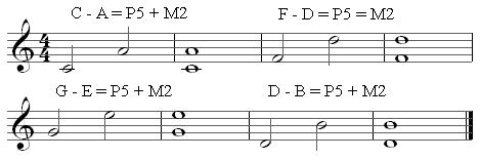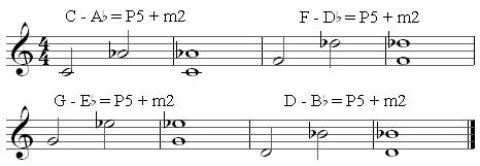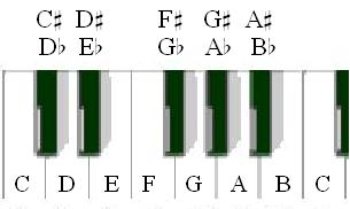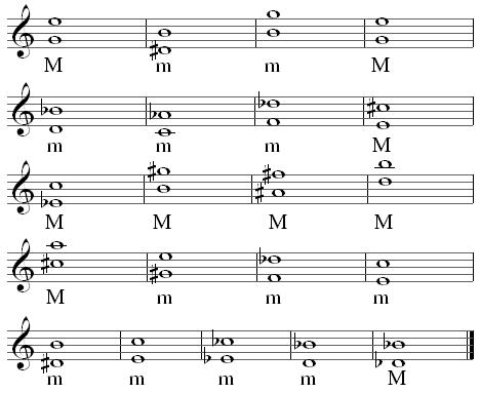Sixths
seconds - thirds - fourths & fifths - sixths - sevenths
Perfect Intervals - Augmented Intervals - Diminished Intervals
6ths: Major & Minor
Sixths are usually either major or minor. Just like 3rds, the sound is kind of settling and mood specific. They're not as tense or dissonant as 2nds or 7ths.
A major sixth consists of a P5 + M2; for example C to A is a major sixth (C to G = a P5 + G to A = a M2.)
A minor sixth consists of a P5 + m2; for example, C to Ab is a minor sixth (C to G = P5 + G to Ab = m2.)
MAJOR SIXTHS
Below are some examples of major sixths. Each one consists of a
P5 = M2:

MINOR SIXTHS
Below are the same intervals EXCEPT they have been changed from major sixths to minor sixths. They each consist of a P5 + m2:

If necessary, use the keyboard diagram below to visualize the whole step, half step construction these intervals.

Below are some MAJOR SIXTHS on various chromatic notes. Each of these major sixths consists of a P5 + M2. (Use the diagram above if necessary.)

Below are some MINOR SIXTHS on various chromatic notes. Each of these minor sixths consists of a P5 + m2. (Use the diagram above if necessary.)

MAJOR & MINOR sixths
The sixths below are either major or minor.
- Major = M
- Minor = m
The major sixths consist of a P5 + M2 - the minor sixths consist of a
P5 + m2.


seconds - thirds - fourths & fifths - sixths - sevenths
Perfect Intervals - Augmented Intervals - Diminished Intervals
Hi and Welcome!
Fill out the form below to sign up for the free periodic
Player's Guide Newsletter!
Get tips and ideas about substitute chords, chord progressions and harmonic movement.
Harmony and Theory:
by Carl Schroeder and Keith Wyatt
The Complete book of:
Scales, Chords,
Arpeggios & Cadences





